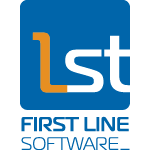News
Top SECR 2018 Reports and Bertrand Meyer Award
On the last week we summed up the results of voting for the best performances and master classes at SECR 2018. Participants could rate and share their opinion during the conference and a few days after. The final rating includes reports with 10 or more votes.
The best master class of this year was “Development of product and and work structure using Thinking processes of Theory of Constraints and Lean Engineering Methods” by Dmitry Egorov from the “Viable Management System”.
Dmitry introduced the participants to formalized tools for identifying and developing the initial requirements for the product and the necessary conditions for its creation, developed in the framework of TOC and Lean.
“The tree of restrictions that I have built up for the process, in which, unfortunately, my department is “thin neck ”, I will hang on the wall in my office, so that our leading engineers finally begin to pay attention to what it needs, that the software on the product passes the tests faster » – Comments one of the participants.

Top 3 workshops also included “The practice of using static code analyzers” by Philip Khandelyants and Svyatoslav Razmyslov, developers from “PVS-Studio”, and Team Trust Canvas methodology to strengthen teams performance by Alexey Pikulev from “In Team We Trust”.
The best talk of the conference was “What is valuable for developers and what your competitors are offering: the results of the research” by Tamara Kulinkovich. Tamara presented the interim results of her research of the value propositions of IT companies in comparison with the expectations of IT professionals, measured according to the Kano model. Listeners noted interesting material of the report, unexpected conclusions and excellent presentation of the speaker.

By the way, this talk was not the only one for Tamara at SECR 2018. Her second report, “8 Counterintuitive Answers about User Research”, also entered the TOP and took 3rd place.
Silver was divided between two performances – Georgy Pchelintsev and Kirill Ulitin. Their total average score coincides to the thousandth. Georgy, Dentons partner, presented practical recommendations to developers on what shouldn’t be done in terms of borrowing knowledge and code in his report “Forbidden Knowledge: What a Developer Can Reuse”. Kirill told about his hands-on experience of using an OpenBCI EEG interface to explore a person’s emotional response while reading texts, and even brought to the conference his tool for conducting a study – neuromash.

The 4th place was also divided between the story of Ilya Shishkov from Yandex about his experience of creating C ++ courses on the Coursera platform and the presentation by Alexander Serbul “Design, development and operation of a high-loaded online replication system – 500 TB and 1 billion customer files between the continents: Amazon S3 (USA) – Mail.ru cloud (Russia)”.

Top 5 closes Phillip Delgyado’s talk about reasons, pros and cons of using different development methodologies (from Waterfall to Kanban) on different project stages.
View the entire list of TOP-25 performances SECR 2018.
In addition to participants voting, the SECR Program Committee selected the best scientific work in the field of software engineering presented at the conference. By tradition, this report is awarded a special Bertrand Meyer Award. This year the winners are Polina Kazakova, Nikita Nikitinsky and Gennady Shtekh from “Integrated Systems”. At the conference, they presented an article on how text segmentation could be applied in the information retrieval domain. Authors assume that topic text segmentation allows one to better model text structure and therefore language itself, which influences the quality of text representation.

















